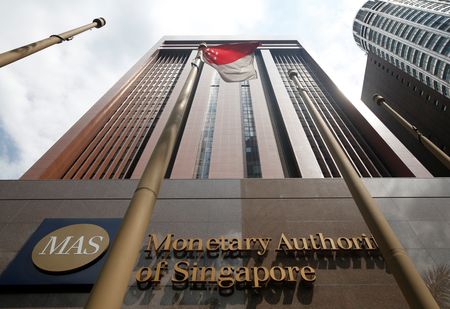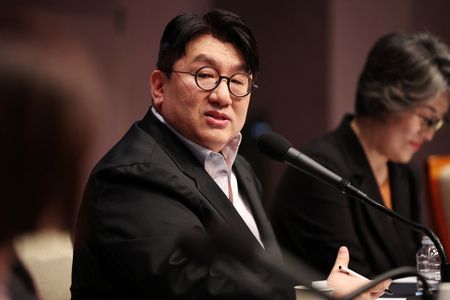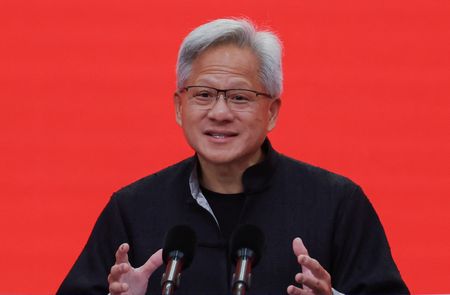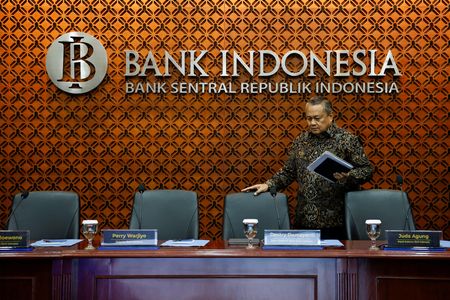By Xinghui Kok and Yantoultra Ngui
SINGAPORE (Reuters) – Singapore’s central bank on Friday loosened its monetary policy, the first such move since 2020, saying it expects inflation and growth to be slower than it initially forecast this year.
The Monetary Authority of Singapore (MAS), which manages monetary policy by targeting the exchange rate rather than interest rates, said it will reduce slightly the slope of the policy band known as S$NEER, or the Singapore dollar nominal effective exchange rate.
It said there would be no change to the width of the policy band or the level at which it is centred.
“This measured adjustment is consistent with a modest and gradual appreciation path of the S$NEER policy band that will ensure medium-term price stability,” MAS said.
The central bank last eased policy in March 2020 as Singapore braced for a recession as the COVID-19 pandemic was spreading worldwide.
Maybank economist Chua Hak Bin said with inflation comfortably below 2% and growth projected to slow, the MAS is recalibrating its policy stance and easing slightly the appreciation rate of the S$NEER.
“Whether the MAS will ease again later this year will depend on whether core inflation remains tame and the extent of the slowing growth momentum,” he said.
On Friday, the central bank reduced its core inflation forecast for 2025 to 1.0 to 2.0% from a previous 1.5% to 2.5%.
Core inflation tapered from its peak of 5.5% in January and February 2023, cooling to 1.8% in December. The forecast for headline inflation remained at 1.5%-2.5%.
Gross domestic product growth was 4% in 2024, above the government’s initial projection of 3.5%, according to advance estimates published this month.
MAS said GDP was expected to grow “at a slower pace” of 1% to 3% in 2025.
The Singapore dollar steadied against the U.S. dollar after initially falling following the announcement. The domestic benchmark stock index rose 0.7%.
As a heavily trade-reliant economy, Singapore uses a unique method of managing monetary policy, tweaking the exchange rate of its dollar against a basket of currencies instead of domestic interest rates like most other countries.
MAS tightened monetary policy five times since October 2021, including in two off-cycle moves, to tame inflation during the pandemic and amid global geopolitical instability.
But since April 2023, it held its stance when concerns over economic growth trumped inflation.
Analysts polled by Reuters earlier were split on whether MAS would loosen or ease monetary policy.
(Reporting by Xinghui Kok and Yantoultra Ngui; Editing by Martin Petty and Jacqueline Wong)











